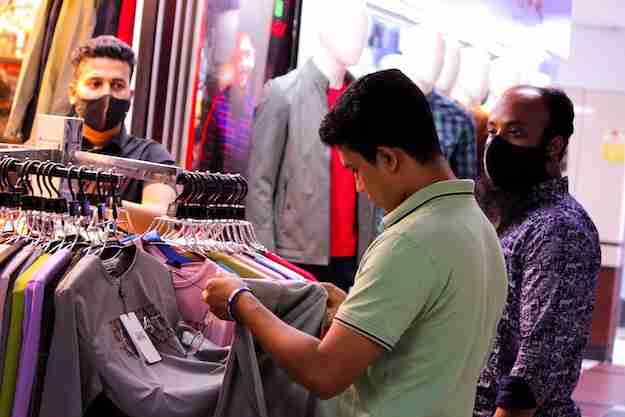As a human insight analyst for various brands, I often meet consumers of different products and categories. Based on that experience I can easily say that consumers nowadays are much more evolved and educated to find their best choice from the market. Especially urban consumers are greatly aware of the new options present to them. For this development, we can credit the brands who have continuously hammered consumer minds with new information through their communication channels and brand mix elements i.e., the packs, ads, and so on. The evolution of the super shops and e-commerce sites also played a great role who have showcased multiple brands on their shelves.
This development apart, while considering the concept of consumer rights, the picture in front of us does not appear so bright. Often, we hear about some legal developments such as the Consumer Rights Protection Act (2009), the Weights and Measures Act (1982), and the Food Safety Act (2013) from consumer rights activists. However, there are still challenges to be addressed to ensure that consumers in Bangladesh have access to safe and fair products and services. Moreover, these legal tools have some key areas to rethink, that our stakeholders hardly speak on. Before focusing on the challenges, better is to point out some of the advancements.
Along with the market evolution, ideas and concerns regarding consumer rights have evolved. In the old past societies were mostly agrarian where the producer or seller himself was the key consumer. Gradually the barter system grew and that led to the market mechanism of buying and selling. But the main historical event that greatly separated the consumer community and the producer community is the industrial revolution in Europe in the 18th century. The industrial revolution has given a strong political-economic shift in the market dynamics and by that process, the producers, who are the owners of the capital, have got an upper hand in the decision-making of the quality of the products, pricing, supply chain, value chains, etc. Moreover, the revolution has brought industrial goods into an unhealthy war of competitive marketing, which also led to fraudulent and quality compromises. Later, during the colonial period, the countries started to separate their industries. Hence consumer goods have got a new dimension of local vs foreign products. And, in various countries, including British India, political movements to boycott foreign goods became a new form of the consumer movement, a much political angle of consumer movement. Indeed, in SouthAsian (two words are spelled together as a symbol of regional integration) history, this is the first-ever experience of consumer activism.
Amidst this context, the idea of consumer rights has evolved in the western markets. On 15 March 1962, US president John F Kennedy first explained the vision of consumer rights in the USA. There he explained 4 specific rights that consumers are entitled to, I.e., the right to safety, the right to choose, the right to get information, and the right to be heard. In the same year, an organization called Consumers International (CI) was founded in Britain and has networked with consumer activists across 140 countries.
Later on, in 1985, the UN declared eight rights as fundamental consumer rights, which include the right to redress, the right to satisfaction of basic needs, the right to consumer education, and the right to a healthy environment adding to the other four rights that J.F Kennedy declared. Based on these global concerns, Bangladesh has also gradually adopted to develop some legal tools. The law for consumer rights protection (2009) is one such development. Additionally, the government has established a dedicated agency, the Bangladesh Standards and Testing Institution (BSTI), to regulate and monitor the quality of products and services in the country and Bangladesh Consumer Rights Protection Authority, to address the grievances of the consumers and implement the consumer rights law.
Sometimes we see staff from these institutions go for market visits and they fine the shops and outlets as a measure of consumer rights protection. However, often in news reports, we see, in reality very less change has occurred. Still, products and services in various categories are provided without maintaining basic standards. Adulteration and fraud in various services are so prevalent that the actions against them seem to be nominal. Often, we see the over exaggeration in ads, overpricing of products, or no mention of pricing on the products.
A key challenge is the lack of awareness among consumers about their rights. Many people in Bangladesh are not aware of their legal rights as consumers or how to seek redress if they have been harmed by a product or service. This makes it difficult for consumers to hold companies accountable for the issues. That apart, the care-free and adamant attitude of the service providers is more prevalent. They seem to be neither aware of consumer rights perspectives nor feel any responsibility to abide by those laws. Most of them believe any mischievous action can be easily legitimized by bribing the higher officials or by influencing them through the support of
political influences.
The issue of online fraud and scams has become prevalent, particularly with the rise of e-commerce platforms. Consumers in Bangladesh face challenges such as fake products, delivery delays, etc. Despite the government’s efforts to regulate e-commerce, there is still a need for more comprehensive consumer protection measures.
In the contemporary hike in inflation, the intention to violate consumer rights tends to be violated at a severe rate. Mostly it happens in the pricing strategy. Though legally consumers should have a voice in the pricing process, in reality, this is hardly seen. In many products and categories, the producers are increasing the price unilaterally giving the cause of inflation, and in such situations, justice is never ensured. Even if there is a 5 per cent inflation, the price hike occurs by 15-20 per cent or even more in various categories. Thanks to the poor regulations.
One more issue is very much important to discuss here. There are some big sectors that are not covered by the current legal framework of consumer rights. Especially the sectors that are run by government authorities. For example, the power sectors experienced several times price increases, which mostly adjusted the IMF prescription, and in each case, the public hearing was never given priority. In some other sectors like health and education services, as these are also commoditized, a transparent pricing strategy is critically important, but nobody looks into that. Private educational institutes and hospitals often charge desperately from the people and the consumer rights protection act (2009) does not cover these sectors at all.






